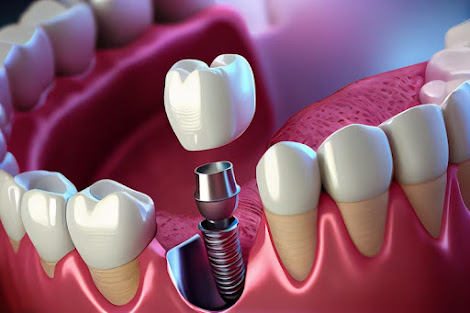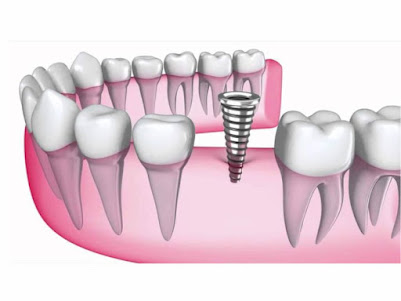How long can I expect my dental implants to last?
Dental implants have become one of the most reliable and long-lasting solutions for people dealing with tooth loss. Whether due to injury, decay, or age, dental implants offer a durable, aesthetically pleasing, and functional alternative to missing teeth. But how long do dental implants last, and what factors influence their longevity? In this article, we’ll explore these questions in detail.
Understanding Dental Implants: What Are They?
Before diving into the lifespan of dental implants, it’s essential to understand what they are. Dental implants consist of three main components:
Implant: A small titanium screw surgically inserted into the jawbone to serve as the root for the replacement tooth.
Abutment: The connector placed on top of the implant to hold the replacement tooth.
Crown: The prosthetic tooth that is attached to the abutment.
Together, these components provide a stable and durable replacement for natural teeth. The implant integrates with the jawbone in a process known as osseointegration, which gives it exceptional strength and longevity.
Average Lifespan of Dental Implants
The lifespan of a dental implant is influenced by several factors, but generally, they can last 15 to 25 years or even longer with proper care. In some cases, dental implants have been known to last a lifetime.
Here’s a breakdown of factors affecting the longevity of your dental implants:
Quality of the Implant: High-quality materials, such as titanium for the implant and ceramic or porcelain for the crown, are more durable and long-lasting. Choosing a reputable dental clinic and an experienced surgeon increases the likelihood of a successful and long-lasting implant.
Patient’s Oral Hygiene: Maintaining excellent oral hygiene is crucial for the success of dental implants. Regular brushing, flossing, and dental check-ups help prevent infections or gum disease that could compromise the implant’s stability. Patients who take care of their oral health can significantly prolong the life of their implants.
Jawbone Health: Implants need a strong and healthy jawbone to integrate properly. In some cases, a bone graft may be required before the implant can be placed. Maintaining healthy bone density in the jaw ensures the implant remains secure.
Lifestyle Choices: Smoking, poor diet, and excessive alcohol consumption can negatively impact the lifespan of dental implants. Smoking, in particular, is associated with a higher risk of implant failure due to reduced blood flow to the gums and slower healing.
Location of the Implant: Implants placed at the back of the mouth, where chewing pressure is higher, tend to wear down faster than those placed at the front. However, high-quality implants are designed to withstand considerable force, so the location is usually only a minor factor.
Post-Surgery Care: Following the dentist's post-surgery care instructions is essential to prevent complications. Infection, overloading the implant before it has fully integrated, or damaging the surgical site can all reduce the implant's lifespan.
Common Causes of Implant Failure
Although dental implants have a high success rate (95% to 98%), failures do occur. The most common causes include:
Peri-implantitis: This is a type of infection that affects the gum and bone surrounding the implant. It is similar to gum disease and can lead to implant failure if not treated promptly.
Bone Loss: Over time, if the jawbone loses density, the implant may lose support and become loose.
Implant Overload: Placing excessive stress on the implant, especially before osseointegration is complete, can cause failure.
Medical Conditions: Certain health issues, such as uncontrolled diabetes or autoimmune disorders, may slow healing and increase the risk of complications.
Extending the Lifespan of Dental Implants
To maximize the longevity of your dental implants, consider the following tips:
Regular Dental Check-ups: Scheduling routine dental visits allows your dentist to monitor the condition of your implant, the surrounding gum tissue, and bone health. Early detection of potential problems can prevent complications.
Maintain Good Oral Hygiene: Brushing twice a day and flossing daily are essential for keeping the surrounding gums and bone healthy. Using antibacterial mouthwash may also help reduce plaque and bacteria.
Avoid Bad Habits: Quitting smoking, reducing alcohol consumption, and avoiding excessive sugar can improve your overall oral health and reduce the chances of implant failure.
Address Medical Conditions: If you have diabetes, osteoporosis, or other conditions that affect healing and bone density, work closely with your dentist and physician to manage these conditions.
Diet and Lifestyle: Eating a balanced diet that is rich in calcium and vitamin D supports bone health, which in turn helps your implant stay secure for longer.
When to Replace the Crown
While the implant itself can last for many years, the crown may need to be replaced periodically. On average, dental crowns last between 10 to 15 years, though with proper care, they can last longer. Regular wear and tear from chewing can cause the crown to wear down, but this doesn’t affect the implant embedded in your jawbone.
Replacing the crown is a relatively simple procedure compared to the implant surgery itself. If your crown becomes damaged or worn out, your dentist can easily replace it while leaving the implant intact.
Conclusion
Dental implants are an excellent long-term solution for missing teeth, with the potential to last a lifetime with the right care. While factors like oral hygiene, lifestyle choices, and implant quality play a significant role in their longevity, regular dental care and attention to your overall health can help ensure that your dental implants remain strong and functional for many years. By following your dentist’s advice and maintaining good habits, you can enjoy the benefits of your dental implants for decades.




Comments
Post a Comment